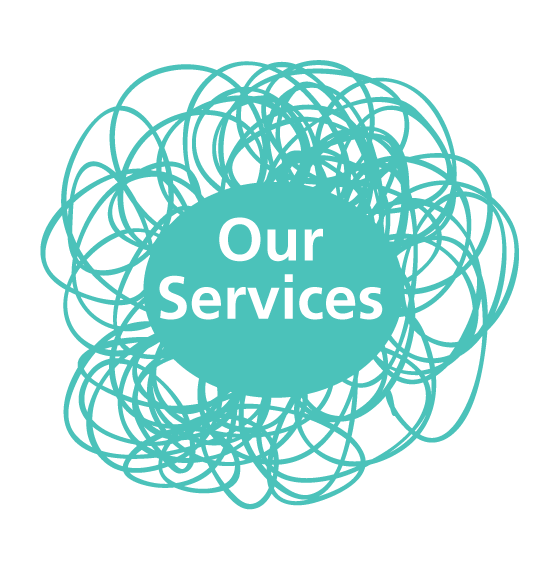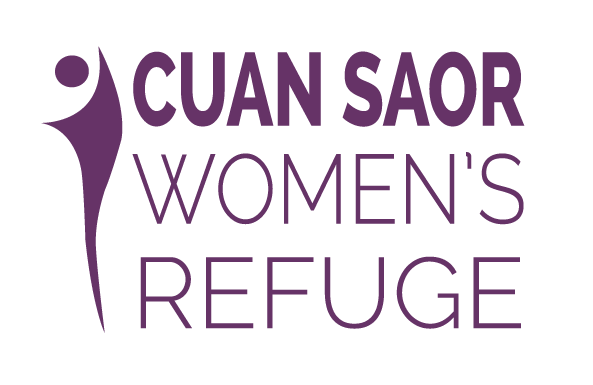Cuan Saor Womens Refuge supporting and changing lives

LGBT Abuse
Domestic abuse in the lesbian, bisexual, gay and transgender community is a serious issue. About 25% of LGBT people suffer through violent or threatening relationships with partners or ex-partners which is about the same rates as in as domestic abuse against heterosexual women. As in opposite-gendered couples, the problem is underreported. Those involved in same-gender abuse are often afraid of revealing their sexual orientation or the nature of their relationship.
There are many parallels between LGBT people’s experience of domestic abuse and that of heterosexual women, including the impact on the abused partner and the types of abuses such as emotional bullying, physical aggression, threats to harm the victim or other loved ones, social isolation, control of finances, extreme jealousy. However, there are a number of aspects that are unique to LGBT domestic abuse.
Outing’ as a method of control – The abuser may threaten to ‘out’ the victim to friends, family, religious communities, co-workers, and others as a method of control. The abuser may use the close-knit dynamic of the gay and lesbian community and the lack of support for LGBT people outside the community to further pressure the victim into compliance.
Abuse associated with sexual orientation or gender identity – For many people, their sexual orientation or gender identity becomes associated with the abuse so that they blame the abuse on being lesbian, gay, bisexual or transgender. So they may feel that they are
experiencing this abuse because they are lesbian, gay, bisexual or transgender or that if they weren’t lesbian, gay, bisexual or transgender that they wouldn’t be experiencing it. This can therefore fuel feelings of internalised homo/bi/transphobia.
Domestic abuse isn’t well recognised in the LGBT community – There hasn’t been much information or discussion in the LGBT communities about domestic abuse. Most information on domestic abuse relates to experiences of heterosexual women. This lack of understanding means that some people may not:
- Believe it happens in LGBT relationships.
- Recognise their experience as domestic abuse if it does happen to them.
- Know how to respond if they see domestic abuse being experienced by their friends.
Confidentiality and isolation within the LGBT communities – LGBT communities are often hidden and can rely on friends and relationships as support within the local community; this is often compounded when living in smaller towns and rural areas and can make it
difficult for the abused partner to seek help. They may feel ashamed about the abuse, or their partner may have tried to turn others in the community against them. An abusive partner may isolate their partner from contact with the LGBT community by preventing them reading any LGBT papers/magazines etc or attending LGBT venues or events and preventing them seeing friends from within the community. This can be especially true for people in their first same-sex relationship who may not have had much contact with the LGBT community before the relationship began.
Encouraging Disclosure It can be hard for LGBT domestic violence victims to seek help because they may not want to disclose their sexuality to police or other organisations. Because of the general homophobia and transphobia in modern societies, LGBT victims of partner violence may be concerned about giving gay and lesbian relationships a ‘bad name’ and may refuse to speak up about the abuse they’re suffering. When
people do seek help, police and other agencies may misunderstand the situation as a fight between two men or women rather than a violent intimate relationship and therefore LGBT people may be discouraged from disclosing if service providers use language which reflect heterosexual assumptions – for example, if it is a woman and she has not disclosed her partner’s sex, don’t ask about her boyfriend/husband or use the word ‘he’ in reference to her partner. If her abuser is a woman she may feel that she cannot disclose this or that it mustn’t count.
Here is an example of asking someone if they are experiencing domestic abuse which is inclusive:
“There are some routine questions we ask all our clients/service users, as many of them are in relationships where they are
either afraid their partners may hurt them or afraid of challenging their partner. Is this a concern for you? Have you ever felt afraid of
your partner?”
The example above does not use gendered language, any wording which has been approved by your organisation for encouraging
disclosure of domestic abuse could be used with simple changes made from references of ‘he/she’ to ‘your partner’.
What you can do if you are experiencing domestic abuse
You will not stop your partner’s abuse: only they can do that. However there are things you can do to increase your own safety. A
safety plan can help you protect yourself against future abuse whether you stay in the relationship, or if you leave. Safety Plan.
You have the right to be protected from domestic abuse just as anyone else does. You can use any of the services listed below to find the support and advice you need. However, some people might prefer to seek advice from a specialist support agency. You do not have to give your name. They will be able to explain your options and help you plan safely.
Cuan Saor Womens Refuge supporting and changing lives

Cuan Saor provides the following services:
- Refuge accommodation (short-term crisis accommodation)
- 24 Hour/365 day Freephone helpline
- Support and information (drop-in or by appointment)
- Counselling
- Outreach to designated clinics in South Tipperary area
- Court Accompaniment Service
- Aftercare
- Training and Awareness-raising
- Child and Family Support

All services are free and confidential.
Simply dial the Freephone helpline 1800 576757 to access the service and a trained member of staff will listen and provide support and information and explain other aspects of services we provide. This service is available 24/7 365 days a year.
24 hour helpline 1800 57 67 57 Email support@cuansaor.org
Cuan Saor's Vision:
Cuan Saor has a vision of society which respects the human rights of
women and children to live violence free.

Cuan Saor's Mission:
Cuan Saor’s Mission is to support all women and children
who have experienced domestic violence
Cuan Saor Womens Refuge supporting and changing lives

Supporting and
changing lives.
Get in Contact today with Cuan Saor, we have counsellors on hand to talk you through your experience
